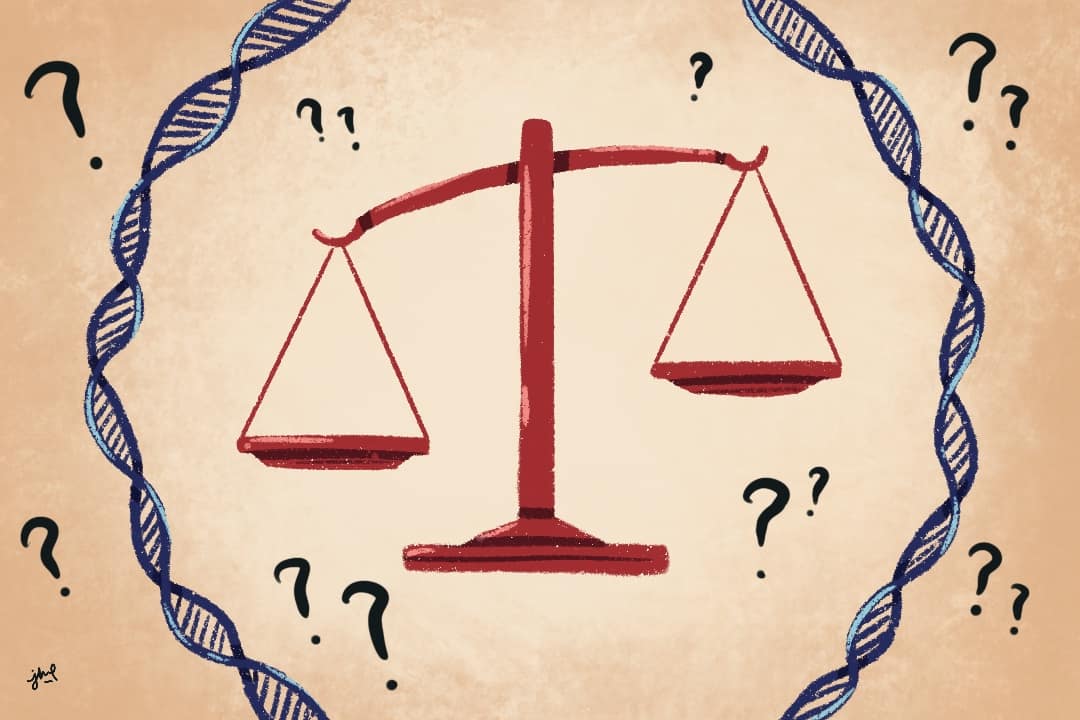On November 25, students hurried into the Jackman Humanities Building for the Bioethics Symposium. Spearheaded by the UofT Philosophy Course Union (PCU), all were welcome as three prominent speakers — Donald Ainslie, Steven Coyne, and Wayne Sumner — discussed matters of life and death through various lenses. Recent news, particularly after the US midterm elections, has brought these issues to the forefront once more and the PCU aimed to provide a platform for thought-provoking and educated discussions.
Ainslie started off the symposium, aptly titled The Moral, Political, and Legal Philosophy of Abortion and Other Matters of Life and Death. He offered an enlightening perspective on the similarities and differences between conversations regarding COVID-19 and acquired immunodeficiency syndrome (AIDS). His own experiences as a member of the LGBTQ+ community along with his research gave him a unique perspective. He argued that the AIDS crisis showed similar patterns to the events following the emergence of COVID-19, only on a slower time scale. He reflected on the same degree of resistance to preventative measures and the pockets of anti-science communities that emerged in light of the developing preventative measures.
Ainslie pointed out the discrepancies between the rate at which institutions took action in both crises. A notable argument is that institutions implement policies that enable personal autonomy when seeking medical aid. However, a major fallacy is that this argument presupposes that the general public is aware of and will choose the best course of action prior to seeking treatment. These conversations reflecting on the disconnect between the bioethics standards and the communities they are supposed to help are what drove him to pursue them in a more academic setting, exploring the idea of the bioethics of everyday life to ask and answer the questions of allowing personal autonomy when it comes to seeking medical treatment.
Following this talk was a local tale presented by Coyne. He walked the audience through the trials and tribulations of Henry Morgentaler, a Polish-born Canadian physician and abortion rights activist, to discuss the motivations behind civil disobedience. Morgentaler housed an abortion clinic on 85 Harbord Street, Toronto, despite it being illegal at the time. Considering the criteria of philosopher John Rawls, civil disobedience must be a “public, nonviolent, conscientious breach of law” with political motivations. Morgentaler’s acts checked some of those boxes, particularly with his public announcement at U of T in 1973, but this did not entirely justify his civil disobedience.
Kimberley Brownlee — Canada Researcher in Ethics and Political and Social Philosophy — has a more individualistic formulation of civil disobedience, which Coyne attempted to use to explain Morgentaler’s actions as motivated by individual moral convictions. While this overcomes some of the situation’s shortcomings from Rawls’ point of view, it still was unsatisfactory. Coyne concluded his talk by highlighting an overlooked aspect in this case study — Morgentaler’s special authority as a medical professional. He was not only acting as an activist but his actions were motivated by his duties and moral obligations as a licensed doctor. These opinions, while not entirely individual, did drive him to take matters into his own hands when he found that the institutions were lacking in providing the services he felt were imperative to women’s health care.
Building on this idea, Sumner, the third and final speaker, ruminated on the ramifications of the post-Morgentaler policies on the issue of abortion. Sumner explained that discussions of abortion disappeared from the public view, primarily because they are less controversial in Canada than in America.
The debate around the moral status of a fetus, Sumner explained, revolves around discerning the sentience of a fetus and the implications it may have when it comes to abortion. Political ideologies in the United States, while claiming to uphold religious ideology, show a clear dissonance when it comes to these discussions. Anti-abortion groups claim the sanctity of life on one hand but actively fight against gun control, which is contradictory to their stance.
With the closing remarks by the PCU, the seminar concluded with a round of applause for the three speakers.


